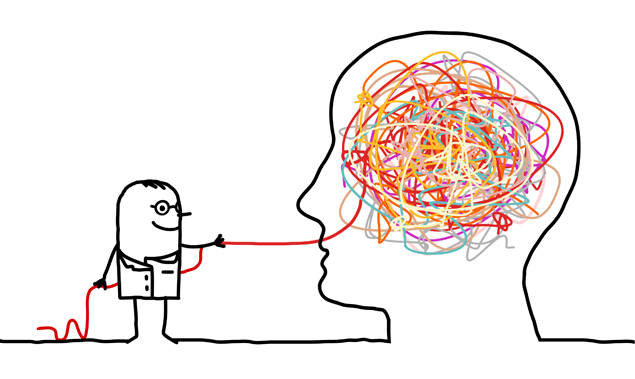If you’re looking for a bipolar therapist, it’s important to find someone who is qualified and experienced in treating bipolar disorder. There are many therapists out there, so how do you identify the right one for you? In this blog post, we will discuss some of the things you should look for when choosing a bipolar therapist. We will also provide some tips on how to choose the right therapist for you.
Contents
Defining Bipolar Disorder

Bipolar disorder is a mental illness that is characterized by extreme mood swings. These mood swings can range from periods of mania or hypomania (highs) to periods of depression (lows). Bipolar disorder can be a very debilitating condition, and it is important to seek out treatment from a qualified therapist if you think you may have the condition.
Bipolar disorder is of various types. All of the types have their own symptoms. But, all types share some common symptoms. These common symptoms include:
- feeling very happy or elated during a period of mania or hypomania
- feeling very down, empty, or hopeless during a period of depression
- having extreme changes in energy levels
- having difficulty sleeping
- experiencing racing thoughts
- engaging in impulsive or risky behaviors during a manic episode, such as spending sprees, sexual indiscretions, or reckless driving.
- withdrawing from friends and activities during a depressive episode
All these symptoms can have a significant impact on your life. And, if you think you may be suffering from bipolar disorder, it is important to seek out treatment from a qualified therapist.
Therapist For Bipolar Disorder
When choosing a therapist, it is important to find someone who is qualified and experienced in treating bipolar disorder. There are many therapists out there, so how do you identify the right one for you? Below are the factors, questions, and logistics you should keep in mind while choosing a therapist.
Types Of Therapists
There are various types of therapists out there who can help you in treating bipolar. Some examples include:
- Psychiatrists: A psychiatrist is a medical doctor who specializes in mental health. They can prescribe medication and also provide therapy.
- Psychologists: A psychologist has a PhD in psychology and can provide therapy but cannot prescribe medication.
- Clinical social workers: Clinical social workers are trained in psychotherapy and also have a degree in social work. They can provide therapy and also offer guidance on other services you may need, such as housing or financial assistance.
- Licensed professional counselors: Licensed professional counselors have a master’s degree in counseling and can provide therapy.
You may approach any of the above-mentioned professionals depending on your preference.
Sourcing Your Options
The first and foremost step in the process is collecting a database of therapists. You can do this by:
- Asking your friends or family if they know any good therapists
- Reaching out to a local mental health center
- Asking your physician for recommendations
- Checking with your insurance company to see which therapists are covered under your plan
- Searching online directories
These organizations often have lists of therapists who specialize in treating bipolar disorder. Once you have a list of potential therapists, you can start to narrow down your options. With the right treatment, you can manage your bipolar disorder and live a healthy and happy life.
Finding The Right Fit

In order to find the right therapist, you need to do your research. When looking at potential therapists, it is important to consider the following factors:
- Verifying the therapist’s educational credentials is an important first step. It is crucial that you find a therapist who is qualified and has experience treating bipolar disorder. You can verify the therapist’s credentials by asking for their CV or checking their website.
- Look for a therapist who has experience treating bipolar disorder. This can be determined by asking the therapist about their training and experience treating bipolar disorder. Not all therapists are qualified to treat bipolar disorder, so be sure to ask about their experience and training in treating this condition.
- Make sure the therapist is licensed as well as credentialed. In order to be licensed, therapists must have completed an accredited graduate degree program and passed a state-recognized exam. Credentialing usually requires completing additional coursework and passing an exam specific to the area of specialty.
- Choose a therapist who uses evidence-based treatments. Evidence-based treatments are those that have been proven to be effective in treating bipolar disorder.
- Find a therapist who you feel comfortable with. It is important to find a therapist who you feel comfortable talking to and who you feel understands your needs. Trust your gut instinct when meeting with potential therapists- if you don’t feel comfortable with them, they’re probably not the right fit for you.
Once you have found a few potential therapists, the next step is to schedule an initial consultation. This is usually a short meeting (20-30 minutes) where you will meet with the therapist and discuss your goals for treatment. This is also a good time to ask any questions you may have about the therapist’s qualifications, experience, or treatment approach.
Things To Consider
You should also consider the following factors when choosing a therapist:
- Location- it is important to choose a therapist who is conveniently located so that you can easily get to your appointments.
- Cost- make sure to inquire about the cost of therapy before scheduling an appointment. Some therapists charge on a sliding scale, which means they charge based on your income.
- Insurance- if you have insurance, find out if the therapist accepts your insurance plan. If not, you may be responsible for paying out of pocket for therapy.
- Availability- make sure to choose a therapist who has appointments available at times that are convenient for you.
- Treatment method- there are many different types of therapy, so make sure to choose a therapist who uses a treatment method that you are comfortable with. For example, are you comfortable undergoing medication along with therapy? Which therapy approach is the most convenient for you?
Keep in mind that choosing a bipolar disorder treatment team is a process. It may take some time to find the right therapist for you, but it will be worth it in the end. With the right treatment team in place, you can begin working on managing your bipolar disorder and living a happy, healthy life.
Questions To Ask

When meeting with potential therapists, be sure to ask the following questions:
- What are your qualifications?
- How long have you been treating bipolar disorder?
- What is your treatment approach?
- Do you use medications in combination with therapy?
- What are your availability and scheduling like?
- What are the costs of therapy?
- Are your services available virtually?
- Do you accept my insurance plan?
- How often will we meet?
- Are you under any supervision?
- What is your success rate in treating patients with bipolar disorder?
- Do you have relevant and up-to-date fieldwork/research/training in treating bipolar symptoms?
- Do you offer sliding scale payment options?
- Is there anything else I should know about you or your practice?
By asking these questions, you can get a better sense of the therapist’s qualifications, experience, and treatment approach. This information will help you make an informed decision about whether or not the therapist is right for you.
Treatments For Bipolar Disorder
Now that we know how to find the right bipolar therapist, let’s talk about some of the treatments that are available for bipolar disorder. There are many different types of treatment, but some of the most common include:
Therapy
- Cognitive behavioral therapy (CBT)- this is a type of therapy that helps patients to change their thinking patterns and behaviors. CBT has been shown to be an effective treatment for bipolar disorder.
- Dialectical behavioral therapy (DBT)- This type of therapy is similar to CBT, but it also focuses on teaching patients how to cope with emotions. DBT has been shown to be an effective treatment for bipolar disorder.
- Interpersonal and social rhythm therapy (IPSRT)- this is a type of therapy that focuses on helping patients to stabilize their daily routines. IPSRT has been shown to be an effective treatment for bipolar disorder.
- Psychotherapy- this is a type of therapy that is focused on helping you understand your thoughts and feelings and how they relate to your behavior. This can be done through individual, group, or family therapy.
- Family therapy- this is a type of therapy that is focused on helping you and your family to understand and cope with bipolar disorder.
- Support groups- these are groups of people who meet regularly to discuss their experiences with bipolar disorder. Support groups can be a great way to meet other people with bipolar disorder and to learn about different coping strategies.
- Electroconvulsive Therapy (ECT)- this is a treatment that is used in severe cases of bipolar disorder where other treatments have been unsuccessful. ECT involves sending electrical currents through the brain to induce a seizure. This treatment is usually done in a hospital setting.
Medication

There are various kinds of medicines that help in relieving bipolar symptoms. Some of the most commonly prescribed medicines include:
- Mood stabilizers- these medicines are used to help stabilize your mood and prevent manic or depressive episodes.
- Antidepressants- these are medicines that help to treat the depressive symptoms of bipolar disorder.
- Antipsychotics– these medicines are used to treat the psychotic symptoms of bipolar disorder such as delusions and hallucinations.
- Anti-anxiety medications- these medicines are used to help relieve anxiety and agitation.
- Sleep medications– these medicines are used to help you get a good night’s sleep.
The decision about which treatment is right for you will be made by you and your treatment team. There is no one right answer, as each person’s situation is unique. The important thing is that you find a treatment that works for you and that you further stick with it.
If you or someone you know is struggling with bipolar disorder, it is important to seek out professional help. With the right treatment team in place, bipolar disorder can be managed and people can live fruitful lives!
Conclusion
To conclude, bipolar disorder is a serious mental illness that can be effectively treated with therapy and medication. If you or someone you know is struggling with bipolar disorder, it is important to seek out professional help. With the right treatment team in place, bipolar disorder can be managed and people can live happy and healthy lives.
For more information, please contact MantraCare. Bipolar disorder is a mental illness characterized by extreme shifts in mood, energy, and activity levels. If you have any queries regarding Online Bipolar Disorder Counseling experienced therapists at MantraCare can help: Book a trial Bipolar Disorder therapy session


